Anxiety in Teens: Recognizing and Addressing Adolescent Anxiety 😔
Learn how to spot the signs of teen anxiety, understand common triggers, and discover effective ways parents and teens can tackle anxiety in adolescents with confidence and compassion.

It's no secret that teen anxiety is on the rise. Scroll through social media, chat with teachers, sit down with parents, and you'll hear the same thing: today's adolescents are feeling the pressure like never before. While anxiety has always been a part of growing up, modern life has magnified its impact, and understanding how to recognise and support anxiety in adolescents has never been more crucial.
Why Teen Anxiety Is on the Rise 🙍♂️

The teenage years have always been turbulent - a delicate dance between childhood and adulthood - but today's teens are navigating a uniquely complex world. According to the National Institute of Mental Health (NIMH), nearly 32% of adolescents have an anxiety disorder. That's one in three teens grappling with intense fear, worry, or panic.
Several factors fuel this surge. Academic expectations have intensified, with university admissions feeling more competitive than ever. Meanwhile, social media has transformed adolescence into a 24/7 performance, where likes, comments, and follows silently measure worth. Add in global events, a lingering pandemic, and rising awareness of mental health struggles, and you have a generation weighed down by invisible burdens.
Dr. Lisa Damour, psychologist and author of Under Pressure: Confronting the Epidemic of Stress and Anxiety in Girls, reminds us that anxiety is often a normal part of growth. "It's when it becomes unmanageable or persistent that we need to intervene," she says.
Why Anxiety in Teens Is Different from Anxiety in Adults 😢

Anxiety doesn't look the same across all ages - and understanding the difference is essential for helping adolescents manage it effectively.
Teen brains are still under construction. The prefrontal cortex, the area responsible for rational thinking, planning, and impulse control, is not fully developed until the mid-20s. This means teens are biologically wired to experience emotions more intensely and may find it harder to regulate their fear and worry compared to adults.
According to the Child Mind Institute, while adults may be able to recognise when their fears are irrational, teens are often engulfed by the immediacy of their emotions. Anxiety in adolescents can manifest more physically - think stomach aches, headaches, or unexplained fatigue - and behaviourally, like defiance or withdrawal, rather than the verbalised worry you might expect from an anxious adult.
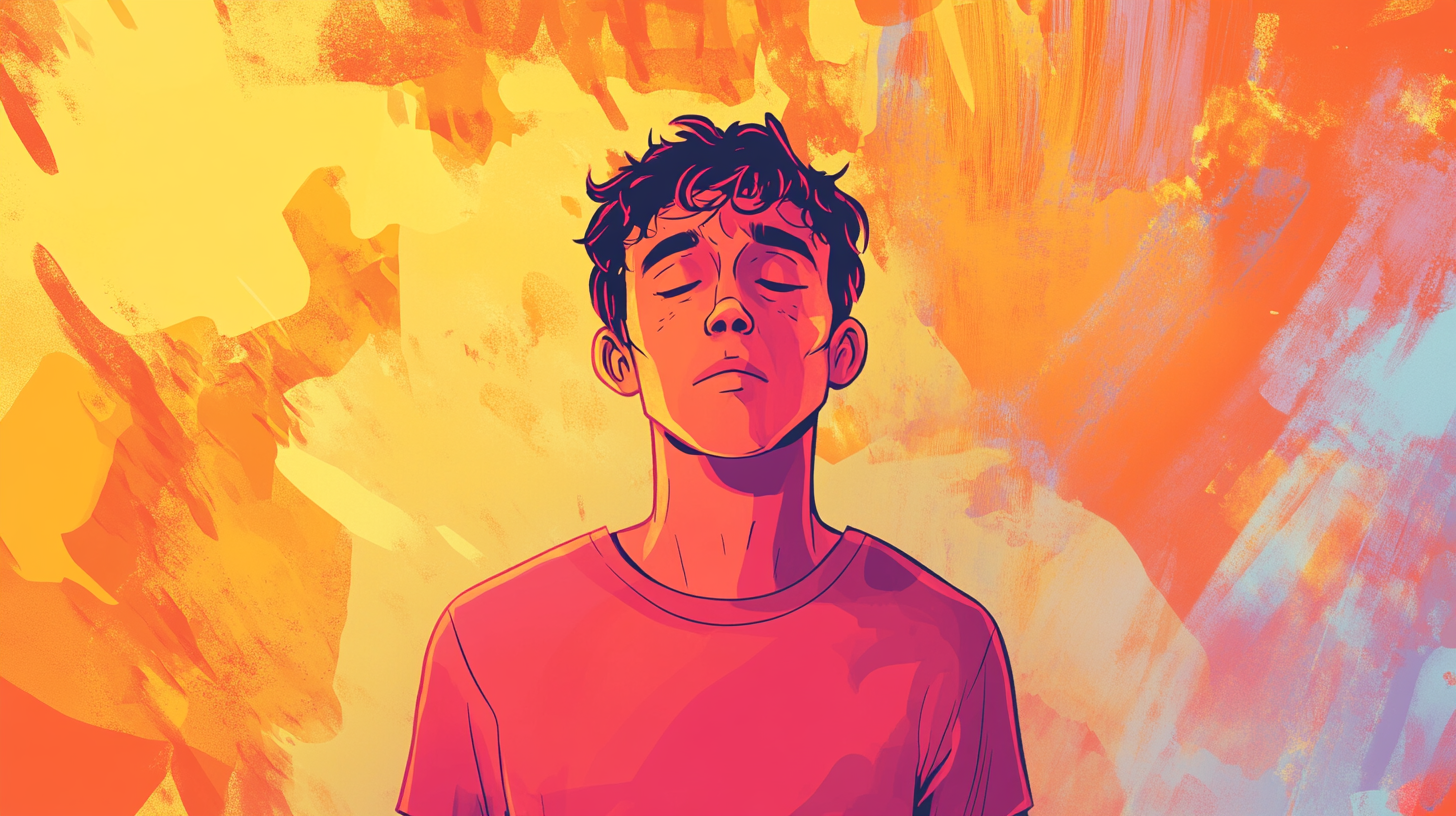
Social factors also amplify teen anxiety. Peer acceptance, academic achievement, body image, and first romantic relationships are heightened concerns during adolescence, often carrying a sense of life-or-death urgency that can bewilder adults looking on. In contrast, adult anxiety typically centres around longer-term issues like career stability, family responsibilities, or financial security.
Hormonal changes during puberty further complicate the picture. Fluctuations in estrogen and testosterone can magnify emotional responses, making teens more sensitive to stress and perceived threats.
Recognising these developmental and social differences is key. It reminds us that teens aren't simply "small adults" - they experience and process anxiety through a completely different lens. Meeting them where they are, with empathy and patience, lays the foundation for genuine support.
Signs to Watch For 👀

Anxiety isn't always loud. Often, it sneaks in quietly, changing a teen's mood, behaviour, sleep patterns, and even academic performance.
- Mood: Look out for persistent irritability, restlessness, or sudden emotional outbursts. Teens may seem more sensitive, withdrawn, or overly self-critical.
- Behaviour: Avoidance is a big red flag. Skipping school, dropping hobbies, isolating from friends, or refusing to try new things could signal anxiety at play.
- Sleep: Anxiety often steals sleep. Teens may struggle to fall asleep, wake frequently, or oversleep as a means of escape.
- Academics: Falling grades, procrastination, and missing assignments aren't just about laziness. Anxiety can make it incredibly hard to concentrate, plan, or cope with pressure.
The key is to notice patterns, not isolated incidents. A bad week is normal; a bad season deserves a closer look.
Common Triggers 🧨
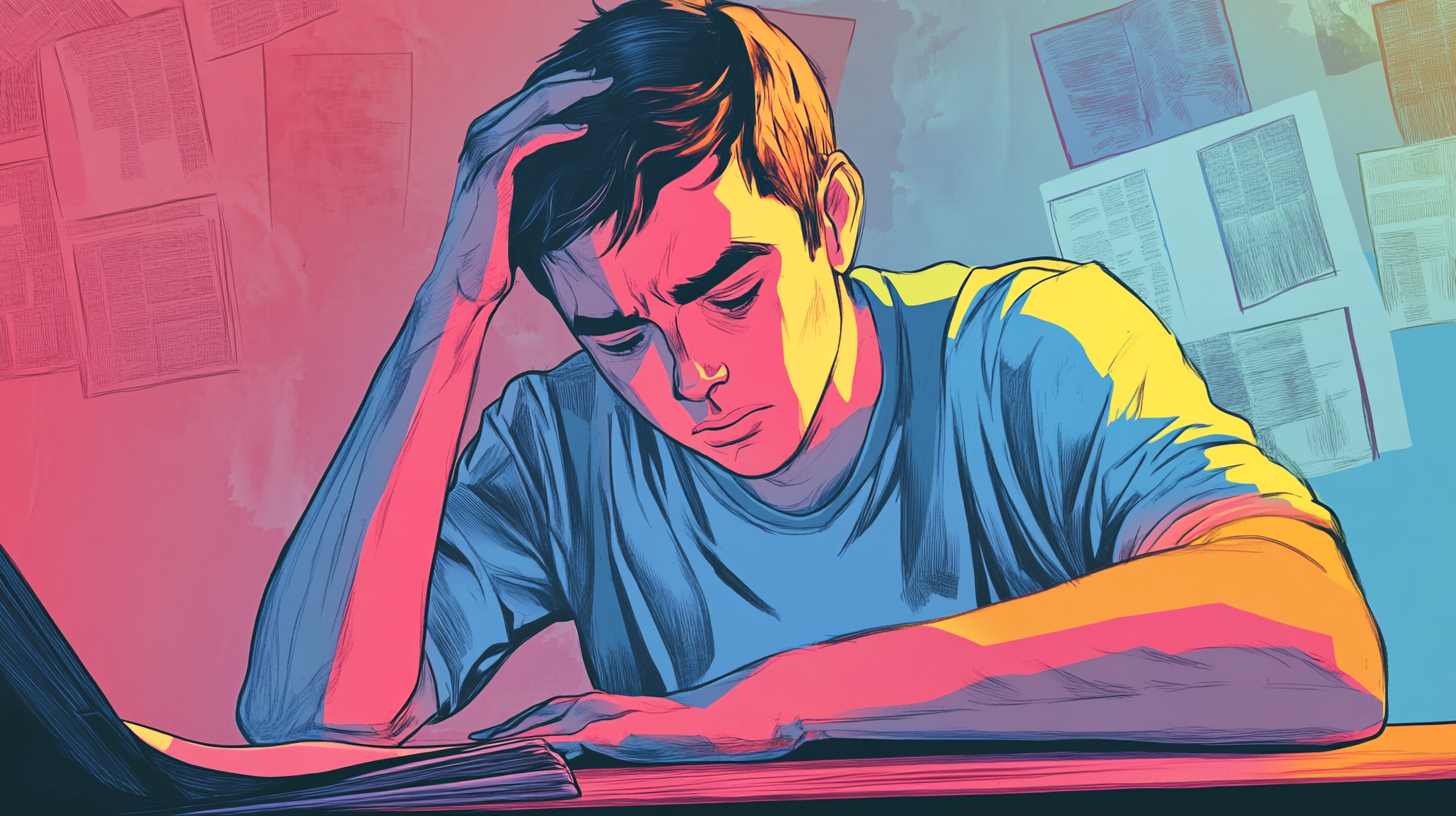
Understanding what triggers anxiety in adolescents can empower parents, caregivers, and teens themselves to address it earlier and more effectively.
Academic Pressure: The fear of failing, not getting into a "good" university, or disappointing family members looms large. According to a 2022 survey by Pew Research Center, 61% of teens reported feeling significant pressure to achieve good grades.

Social Media: While it connects teens to peers and trends, social media also fosters comparison, cyberbullying, and FOMO (fear of missing out). A study from the American Psychological Association found that higher social media use correlates with increased feelings of anxiety and depression.
Hormonal Changes: Adolescence is a hormonal rollercoaster. These natural changes affect mood regulation, making teens more vulnerable to emotional highs and lows. For teens already predisposed to anxiety, puberty can amplify symptoms dramatically.
How Parents and Caregivers Can Help 🫶
First, it's vital to stay connected. Open, non-judgmental conversations create a safe space for teens to express themselves. Instead of rushing to fix the problem, parents can validate feelings: "It sounds like you're feeling really overwhelmed right now."
Secondly, model healthy coping mechanisms. Stress is inevitable, but how adults handle it teaches teens resilience. Practice self-care, talk openly about mental health, and normalise seeking support.
Finally, set realistic expectations. Encouraging effort over perfection helps teens internalise that their worth isn't tied to achievements.
Therapy Options for Teens 👩🦰
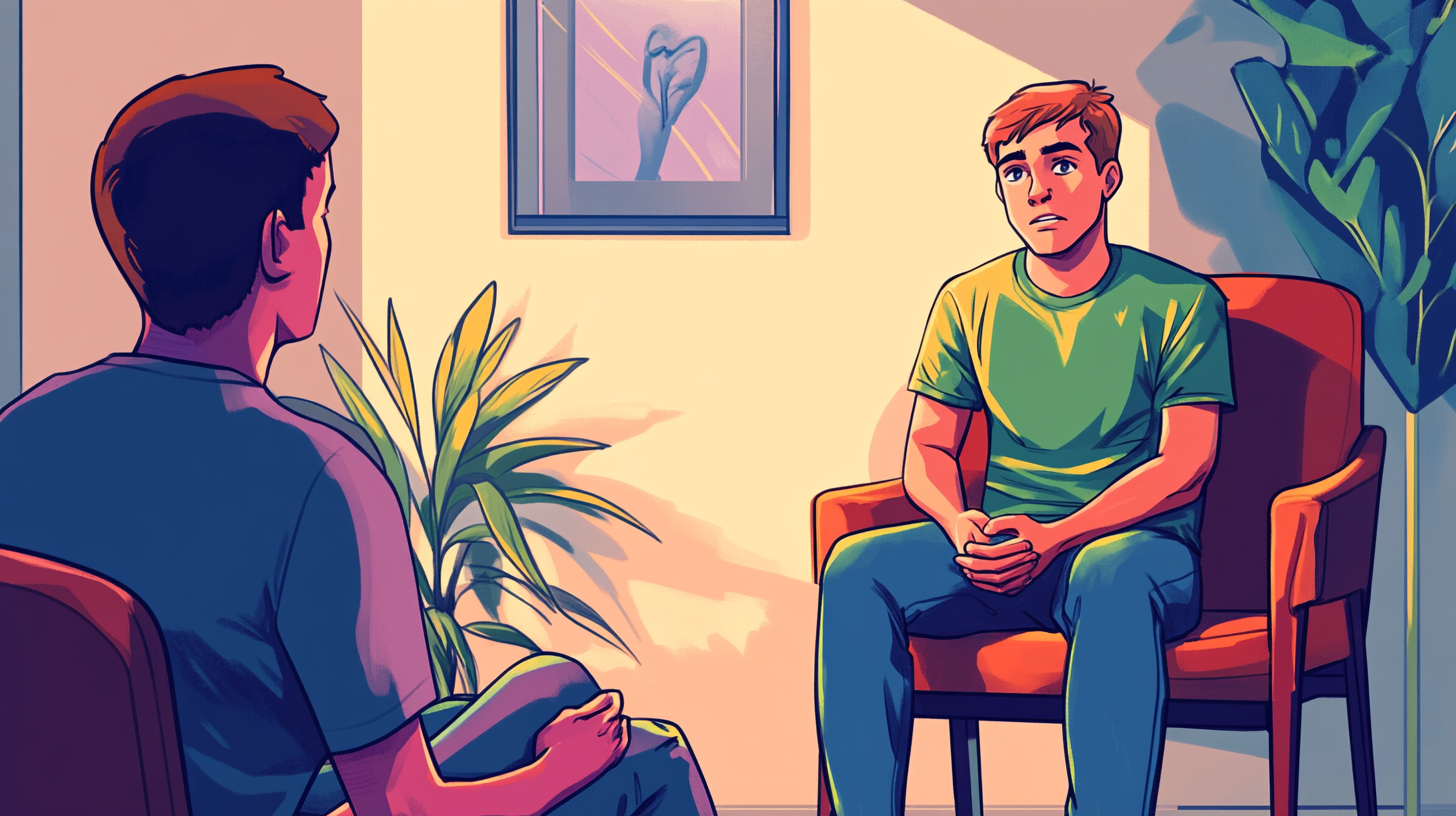
When anxiety becomes overwhelming, therapy can be a lifeline. Cognitive Behavioural Therapy (CBT) remains the gold standard, with strong evidence supporting its effectiveness for treating anxiety in adolescents (Mayo Clinic).
Other options include:
- Anxiety specific therapy: Helping teens gradually face their fears in a controlled way.
- Family therapy: Strengthening communication and support at home.
- Medication: In some cases, a psychiatrist may recommend antidepressants or anti-anxiety medication alongside therapy.
A licensed mental health professional can guide families towards the best fit based on individual needs. And if you’re looking for more specific guidance, I can help you with that.
School Support: 504 Plans, Counsellors 🧑⚕️

Schools can be a critical line of support. Under the Americans with Disabilities Act (ADA), students in the US with diagnosed anxiety disorders may qualify for a 504 Plan - accommodations designed to remove barriers to learning.
Examples include:
- Extended time on tests
- Permission to take breaks during lessons
- Modified homework assignments
School counsellors and psychologists can also provide in-school support, group therapy sessions, and referrals for outside services. If you're unsure where to start, ask the school's support team for a meeting to discuss options.
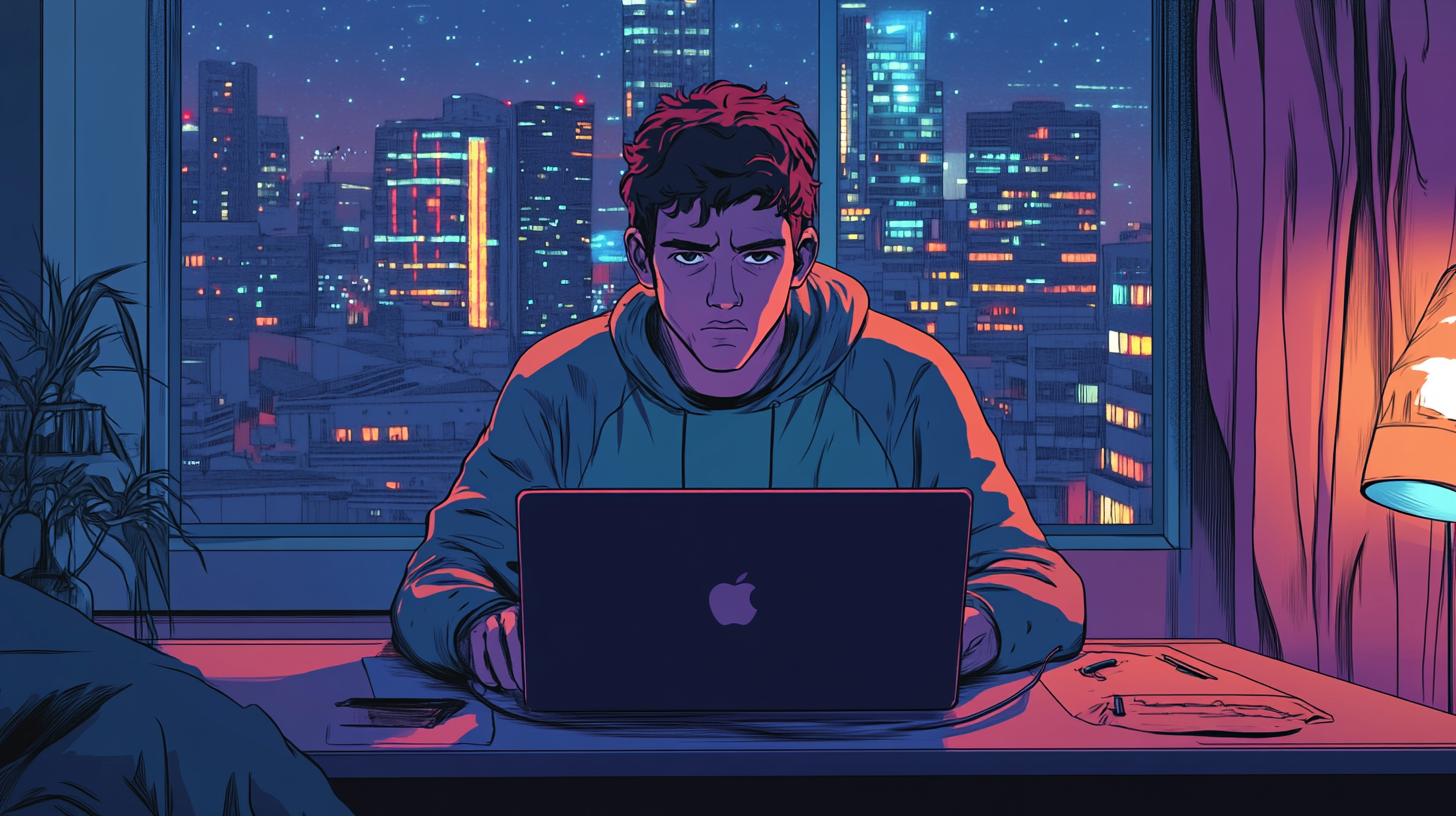
In the UK, while there isn’t quite the same level of support, here are some useful resources:
- YoungMinds - youngminds.org.uk - Mental health support for young people, parents and carers. Includes information about mental health problems and medication.
- Youth Access- - youthaccess.org.uk - Advice and counselling network for young people. Includes a search tool for finding free local services.
When to Seek Medical Advice 🏥
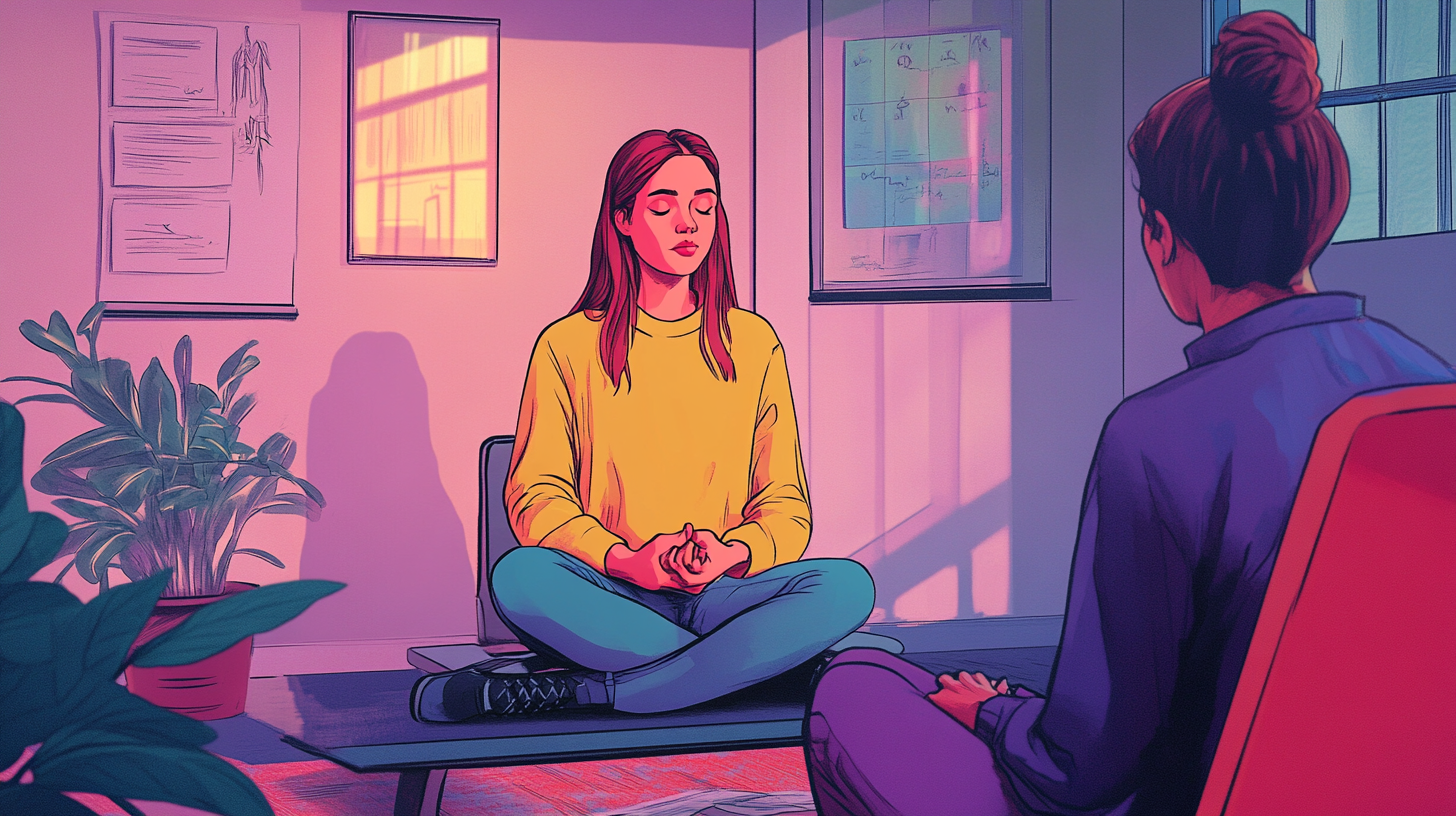
If a teen's anxiety is severe, persistent, or interferes significantly with daily life, it's time to seek professional help. Warning signs include:
- Self-harm
- Substance use
- Extreme withdrawal
- Panic attacks
- Persistent suicidal thoughts
Start with a visit to your GP, who can assess symptoms, rule out medical causes, and refer to a mental health specialist if needed.
The earlier anxiety is addressed, the better the outcomes - both emotionally and academically.
Tips for Teens: Coping Strategies They Can Try 💆♂️

While therapy is often necessary for moderate to severe anxiety, teens can also practise daily coping strategies to build resilience:
- Mindful breathing: Even a few minutes a day of focused breathing can lower stress levels.
- Journalling: Writing down thoughts can help externalise worries and make them feel more manageable.
- Movement: Exercise is a proven stress-buster. Whether it's running, dancing, or yoga, moving the body can calm the mind.
- Setting boundaries with technology: Limiting time on social media helps reduce comparison and overwhelm.
- Positive self-talk: Learning to challenge anxious thoughts ("What's the worst that could happen?") builds emotional strength.
Above all, remind teens (and ourselves) that anxiety doesn't define them - it's something they are experiencing, not who they are.
Further Reading 📚
- National Institute of Mental Health - Anxiety Disorders
- Pew Research Center - Teens and Academic Pressure
- American Psychological Association - Stress and Social Media
- Mayo Clinic - Anxiety Disorders




